Cultivating Good Media Relations

Prepare for Media Contact and Cultivate Good Relations to Garner Positive Exposure for Your Car Wash
What the public understands, it trusts. What it trusts, it supports. Public sentiment is everything. With it, nothing can fail. Without it, nothing can succeed. -Abraham Lincoln
Honest Abe imparted some sage advice that certainly holds true today when it comes to exposing your business to the public via the media.
Garnering good publicity and handling all media interactions in a positive way are valuable goals for the car wash operator. Media members and their various outlets are going to get the story they are seeking with or without your cooperation, so it’s best to take control of the situation and present the story as you would like it to be told.
Preparing Your Team for Positive Media Exposure
Some proactive, confidence-building steps for preparing company team members to face a TV camera and reporter’s questions include:
- Compiling probable media questions and company-approved answers that can be reviewed and rehearsed.
- Providing bullet-pointed tip sheets on how to behave and present oneself during an interview and on-camera. Team members can review these in advance as well as quickly on-the-spot during a media encounter.
- Conducting media training sessions with one-on-one mock interviews.
When a company spokesperson conducts a professional interview, it provides terrific public exposure for your services, brand, community image, team member recruitment, and our industry as a whole. It can also inspire return media visits, as journalists appreciate a welcoming, smooth, and productive process that helps them get the information they need.
Often, media exposure involving car washes is weather-related -- primarily local TV media looking for news angles pertinent to snow, ice, brined/salted roads, drought, pollen, leaves, extreme heat/frigid temperatures, and other non-emergency matters, and the resulting or predicted effect on the car wash business. The media may also cover a fundraiser, grand opening, or other special event you’re holding on-site.
These are normally “softball” interviews in which the journalist is looking for a minute or two of video footage and sound bites about dealing with a current weather event or the positive aspects of your on-site event. These interviews typically don’t involve controversial or unpleasant topics, but you must be prepared for those as well.
Media Response Plans
Occasionally journalists will arrive on-site unannounced, making it imperative to have company procedures in place for who will handle the situation for your car wash and how, and that these designated team members are trained on dealing with the media.
For emergency situations (serious injury, death, crime, etc.) at your business and the impending media encounters, you should have a crisis communication plan in place that follows company protocol regarding notifying upper management, securing the property, identifying the appropriate company spokesperson, and handling any media. As quickly as possible, gather all known facts about the situation and compile those with talking points for the spokesperson.
Following are some general tips for dealing with the media and interview opportunities:
In dealing with the media, you should seek to:
- Influence
- Encourage
- Utilize
What do you want?
- Respect and positioning
- Exposure
- Positive publicity
How can you work best with the media?
- Make friends with local media in advance.
- Always be honest.
- Help the media get what they want/need to do their job.
- Don’t look for fights with the media.
- Don’t ever try to have a story killed.
- Be accessible.
- Always say thank you.
- Never threaten a reporter and never try to reward one.
- When controversies arise, state your side of the story fully, then drop it.
- Don't contact, pitch, or engage media members publicly on social media. Keep any communications direct/private.
- Think before answering difficult questions.
- Don’t tell a reporter that you need publicity.
- Become a credible news resource.
Prepare for an Interview:
- Take all requests for interviews seriously.
- Ask the general nature of the interview.
- Rehearse possible questions and answers.
During the interview:
- Always be honest! (This bears repeating.)
- Don’t try to talk “off the record.”
- Speak clearly and enunciate properly.
- Use language the reporter and the public will understand.
- Answer the question first, then elaborate. Most edited TV sound bites are only 6-10 seconds.
- Support your answers with facts, figures, and industry-related experience.
- Be brief: media want brief sound bites. Interviews will be edited to fit media needs.
- Talk with confidence.
- Don’t answer questions that weren’t asked.
- Never lose your cool.
- Never say “no comment.”
- Don’t try to be funny or sarcastic.
- Don’t answer proprietary or personal questions.
- Answer negative questions with a response that provides positive information, thereby refuting the negative. This is called “bridging.” Examples include:
- Question: <em>Don’t car washes use a lot of water?</em>
- Answer: <em>Most professional car washes treat and recycle up to 100% of their wash water. A home car wash can use up to 150 gallons, with the runoff typically flowing into storm drains, where it pollutes and harms wildlife.</em>
- Question: <em>How can anybody afford to clean their vehicle as frequently as you recommend, when most car washes have become so expensive?</em>
- Answer: <em>Many regular customers are members of our wash club that allows unlimited car washes every month for a set price, providing great savings and a continually clean car.</em>
- Avoid answering “what if” questions.
- Quickly refute any assertions of unethical business practices.
- Be sure to know and make your key points.
In summary:
- Be prepared.
- Be honest.
- Be brief.
- Be professional.
For TV Interviews:
- Ask what the interview is specifically about and if it will be live or recorded. Live interviews will not be edited and give the interviewee more time to elaborate on the topic at hand.
- Ask to do the interview outside, displaying your business<sup> </sup>logo and facility in the background. Team members in action in the background can also enhance the shot. You want to show vibrant activity if possible.
- Groom carefully.
- Dress properly. Keep an extra clean shirt at work.
- Be a gracious host.
- Suggest story enhancements (additional video shots or angles from optimal vantage points, a ride through the wash, customer interview, etc.)
- Practice your message.
- Never look at the camera. Focus on and speak to the reporter who is asking the questions.
- Maintain good posture.
- Remember that “camera off” doesn’t mean the interview is over.
- Strive to sway public opinion.
During a TV interview, DON’T:
- Chew gum or use any tobacco product.
- Place your hand in front of your mouth.
- Wring or wave your hands.
- Put hands in pockets.
- Jingle stuff in pockets.
- Play with your hair or rub your face/head.
- Preferably, don’t wear a cap. It casts shadow on the face, giving the impression of “hiding,” and also lending a less-than-professional appearance to someone in a managerial position. However, if “hat hair” dictates that it would be better to keep your hat on, make sure the brim is raised far enough that it doesn’t cover or shade your eyes.
- Wear a dirty shirt or hat.
- Wear a backwards ball cap.
- Use trade jargon.
- Use foul language.
- Look at the camera.
- Fidget, bounce, sway, or make other unnecessary and distracting movements.
- Use non-words or filler words -- <em>um, uh, like, y’know</em>. Use a pause instead of non-words to keep the audience’s attention.
- Start your answers with the word “So…” unnecessarily.
- End sentences with “upspeak” – raising your vocal pitch on the final word as if asking a question rather than making a statement. This makes you sound doubtful about your statement and in need of validation by the listener.
- Get “chummy” with the reporter. Keep it polite but professional.
- Sit in a swivel chair or behind a desk. Always stand if possible.
Skills for successful media relations:
- Be authentic, natural, and confident in your answers.
- Be flexible and accommodating.
- Speak to your audience. You are “selling” your services.
- If you mess up, correct yourself by starting the thought over again. Your mistake will almost certainly be edited out.
- Be compelling.
- Smile! A pleasant expression and positive demeanor inspire public trust and understanding.
Preparation and practice builds confidence and relationships, which can make dealing with the news media a productive and pleasant experience for you and your car wash team, rather than an intimidating prospect.
Related Resources
What are you waiting for?
Take the first step toward your business goals and reach out today. Our team is ready to get started when you are.


